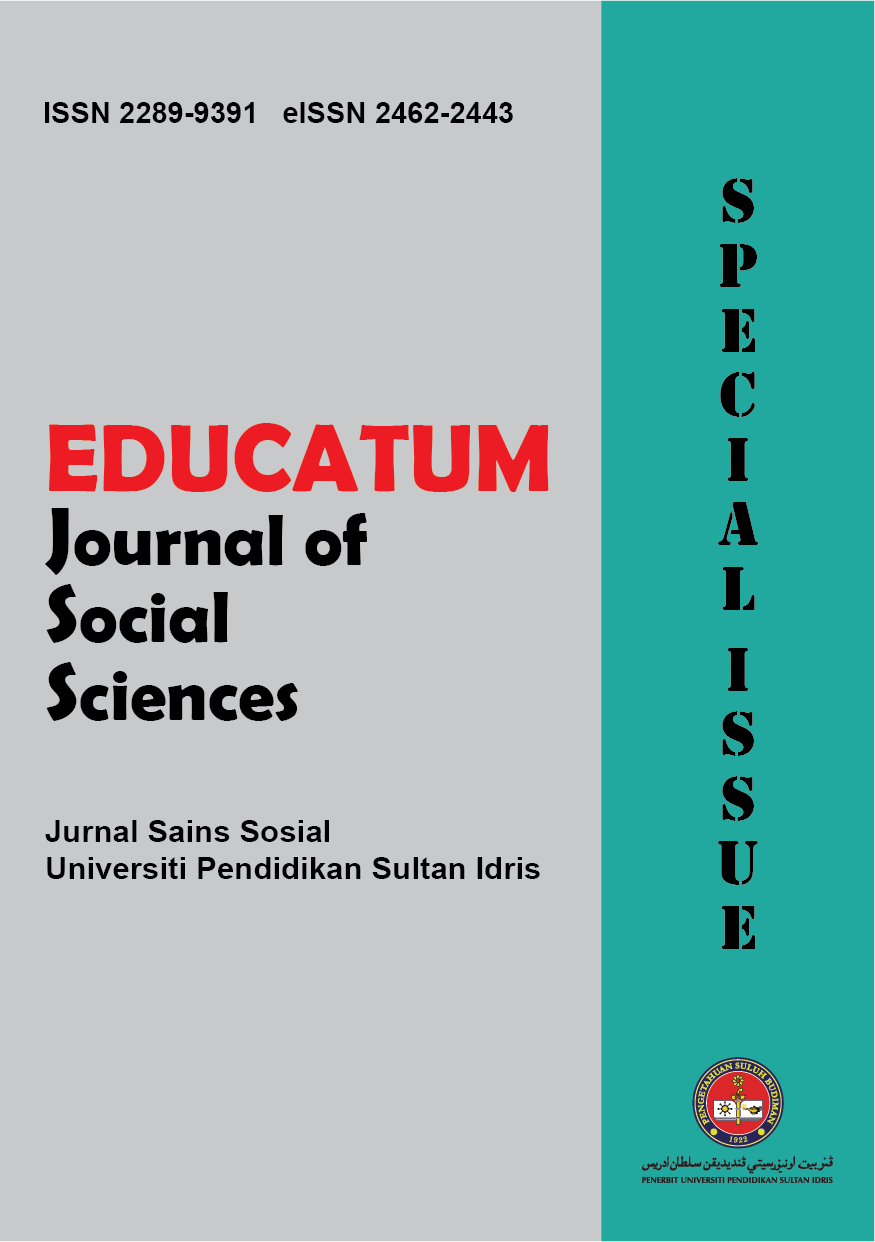The relationship between parenting styles and internet gaming disorders among secondary school children from the East Coast District in Malaysia
DOI:
https://doi.org/10.37134/ejoss.vol11.sp.2.2025Keywords:
authoritarian, authoritative, gaming disorders, secondary school studentsAbstract
This research aimed to explore the link between parenting styles and gaming disorders among secondary school students in Kelantan, Malaysia. A quantitative correlational survey design was employed, utilizing online survey questionnaires for data collection. The instruments utilized were the Internet Gaming Disorder (IGD) and the Parenting Style Dimensions Questionnaire (PSDQ). A total of 209 respondents from a secondary school participated in the study. Results revealed a significant positive correlation between authoritarian parenting style and gaming disorders among secondary school students. This study serves as a pilot investigation to identify factors associated with gaming disorders, particularly among adolescents. In conclusion, the findings suggest valuable insights for future interventions addressing parenting and internet gaming disorders. Further exploration of the relationship between parenting styles and gaming disorders is recommended for a deeper understanding of this phenomenon.
Downloads
References
American Psychiatric Association. (2022). Diagnostic and statistical manual of mental disorders (5th ed., text rev.). American Psychiatric Association Publishing. https://doi.org/10.1176/appi.books.9780890425787
Anandari, D. R. (2016). Permissive parenting style and its risks to trigger online game addiction among children. Asian Conference 2nd Psychology & Humanity, 773–781.
Baumrind, D. (1967). Child care practices anteceding three patterns of preschool behavior. Genetic Psychology Monographs, 75(1), 43–88.
Baumrind, D. (1971). Current patterns of parental authority. Developmental Psychology, 4(1, Pt.2), 1–103. https://doi.org/10.1037/h0030372
Benarous, X., Miet, C., Piazza, P. V., & Guilé, J. M. (2019). Internet gaming disorder in adolescents: A narrative review of neurobiological and psychosocial risk factors. Frontiers in Psychiatry, 10, 457. https://doi.org/10.3389/fpsyt.2019.00457
Bonnaire, C., & Phan, O. (2017). Relationships between parental attitudes, family functioning, and internet gaming disorder in adolescents attending school. Psychiatry Research, 255, 104–110. https://doi.org/10.1016/j.psychres.2017.05.030
Cheng, C., Cheung, M. W.-L., & Wang, H. (2018). Multinational comparison of internet gaming disorder and psychosocial problems versus well-being: Meta-analysis of 20 countries. Computers in Human Behavior, 88, 153–167. https://doi.org/10.1016/j.chb.2018.06.033
Choo, H., Sim, T., Liau, A. K. F., Gentile, D. A., & Khoo, A. (2015). Parental influences on pathological symptoms of video-gaming among children and adolescents: A prospective study. Journal of Child and Family Studies, 24(5), 1429–1441. https://doi.org/10.1007/s10826-014-9949-9
Feng, W., Ramo, D. E., Chan, S. R., & Bourgeois, J. A. (2017). Internet gaming disorder: Trends in prevalence 1998–2016. Addictive Behaviors, 75, 17–24. https://doi.org/10.1016/j.addbeh.2017.06.010
Kaptsis, D., King, D. L., Delfabbro, P. H., & Gradisar, M. (2016). Withdrawal symptoms in internet gaming disorder: A systematic review. Clinical Psychology Review, 43, 58–66. https://doi.org/10.1016/j.cpr.2015.11.006
Kawabata, Y., Alink, L. R., Tseng, W. L., Van IJzendoorn, M. H., & Crick, N. R. (2011). Maternal and paternal parenting styles associated with relational aggression in children and adolescents: A conceptual analysis and meta-analytic review. Developmental Review, 31(4), 240–278. https://doi.org/10.1016/j.dr.2011.08.001
Laconi, S., Pirès, S., & Chabrol, H. (2017). Internet gaming disorder, motives, game genres, and psychopathology. Computers in Human Behavior, 75, 652–659. https://doi.org/10.1016/j.chb.2017.06.012
Mihara, S., & Higuchi, S. (2017). Cross-sectional and longitudinal epidemiological studies of internet gaming disorder: A systematic review of the literature. Psychiatry and Clinical Neurosciences, 71(7), 425–444. https://doi.org/10.1111/pcn.12532
Naskar, S., Victor, R., Nath, K., & Sengupta, C. (2016). “One level more:” A narrative review on internet gaming disorder. Industrial Psychiatry Journal, 25(2), 145–154. https://doi.org/10.4103/ipj.ipj_69_15
Symons, K., Ponnet, K., Walrave, M., & Heirman, W. (2017). A qualitative study of parental mediation practices of adolescents’ internet use. Computers in Human Behavior, 73, 423–432. https://doi.org/10.1016/j.chb.2017.03.036
Tokunaga, R. S. (2017). A meta-analysis of the relationships between psychosocial problems and internet use. Communication Monographs, 84(4), 423–446. https://doi.org/10.1080/03637751.2017.1332419
Wartberg, L., Kriston, L., & Thomasius, R. (2017). The prevalence and psychosocial correlates of internet gaming disorder. Deutsches Arzteblatt International, 114(25), 419–424. https://doi.org/10.3238/arztebl.2017.0419
World Health Organization. (2018). Inclusion of “gaming disorder” in ICD-11. World Health Organization. https://www.who.int/news/item/14-09-2018-inclusion-of-gaming-disorder-in-icd-11
Yen, J. Y., Yen, C. F., Chen, C. S., Tang, T. C., & Ko, C. H. (2019). The association between adult ADHD symptoms and internet addiction among college students: The gender difference. Cyberpsychology, Behavior, and Social Networking, 12(2), 187–191. https://doi.org/10.1089/cyber.2008.0213
Downloads
Published
Issue
Section
License
Copyright (c) 2025 Nur Khairunisha Roshayat, Nor Firdous Mohamed, Nur Amani Ahmad Tajuddin, Bahbibi Rahmatullah

This work is licensed under a Creative Commons Attribution-NonCommercial-ShareAlike 4.0 International License.





